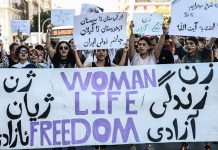Chen explains that children acquire language from their environment and parents are just one source of input. Once they start mixing with other children from the age of two or three, they start to learn and practise their language skills by interacting with their peers and teachers, plus any other available sources, such as TV and music.
“Think about children growing up in Hong Kong whose parents are speaking a home dialect such as Chiuchow, Hakka or Shanghainese. The parents are likely to have a strong non-native Cantonese accent; the children grow up speaking native local Cantonese nonetheless,” says Chen.
In other words, a language environment, even non-native, can be conducive to language development. Children do not necessarily adopt the non-native accent or language errors of the parents or other caregivers.
That said, Chen believes it is a shame if parents only expose a child to one language when they themselves can speak another. “It’s a pity that only one language is used in the home context,” says Chen. “The children are not given the opportunity to learn or use other languages when actually they have the resources. A child can safely acquire four languages.”
Virginia Yip, who chairs the Department of Linguistics at Chinese University of Hong Kong, says the golden period for learning languages is birth to three years, when children can learn a language effortlessly. After four to five, learning a new language will need some effort. This is why cultivating a multiple language environment in infancy is an effective and conducive means for developing multi-lingual skills.
Yip, who is also the director of the Childhood Bilingualism Research Centre at CUHK, believes in bi-literacy and tri-lingualism and says if children speak only English in the golden period, Cantonese will eventually become their second language.
In fact Alice Hui, who went to great lengths to create an early English-only environment, says her children were not fluent in Cantonese when they entered kindergarten and still have difficulties understanding some difficult Cantonese phrases and words.
Professor Yip believes parents should strive for a balance, as it is undesirable to use one language at the expense of the other. “There is absolutely no doubt that English as an international language is very important, but so are the other languages,” she says.







































This article states a fact that is at odds with other article of this magazine. The other article about Muslims in Hong Kong says there are about 250,000 muslims in Hong Kong, mostly from Indonesia but also from South Asia and other locations. I am sure those 250,000 muslims are not native-speakers of Cantonese. If Hong Kong has about 7m people then 250k is about 3.7% of the Hong Kong people; then you have to add the expatriate population working in the financial, legal and business sectors that come mainly from Europe, Australia and North America; finally, all the Hong Kong residents coming from non-Cantonese speaking parts Mainland China and the Sinosphere in general. I think 97% native-speakers of Cantonese for an alpha-world city as Hong Kong is quite high. I wonder where you got that number from?
Yes, this is increasingly true. The article states that Shatin College is an international school. Actually, it’s not; it’s an ESF school. And what’s not mentioned is that, while Chinese children at ESF and int’l schools do pick up English to native or near-native level, they do not learn any Chinese in school. Even if they have tutors for Chinese – very rarely can these children become fully literate in Chinese if they focus on English.
Thank you for your comment and for pointing out the error. We have corrected it.